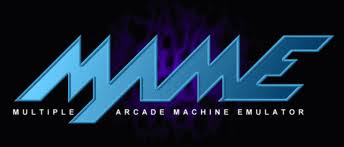
For playing our games you need install emulator to your computer
How to install emulator Download emulatorEmulator Games 
The Rise of Emulator Games: History, Functionality, and Ethical Considerations
1. Introduction
Emulator games have become a significant part of modern gaming culture. An emulator is a specialized form of software or hardware that replicates the functions of one computing system on a different platform. Through emulators, gamers can enjoy classic titles from retro consoles, arcade machines, and even some modern systems directly on their PC, smartphone, or other devices. This article delves into the history of emulators, their core functionality, various use cases, and the ethical discussions that surround them.
2. Historical Overview
2.1. Early Beginnings
Emulation technology dates back to the 1960s and 1970s when it was initially used for mainframe compatibility. As personal computing evolved through the 1980s and 1990s, emulation shifted into the consumer gaming arena. Hobbyists and programmers began creating software that could mimic the operating environment of consoles from companies like Nintendo, Sega, and Sony.
2.2. Milestones in Emulator Development
Throughout the 1990s, several open-source projects laid the groundwork for advanced console emulation. The release of NES emulators such as NESticle propelled the concept into popular culture. By the early 2000s, emulators like ePSXe (PlayStation) and Dolphin (GameCube and Wii) demonstrated a remarkable level of sophistication and accuracy. These breakthroughs attracted the attention of both enthusiasts and legal authorities, sparking debates on copyright laws and preservation efforts.
3. Core Functionality of Emulators
3.1. CPU and Hardware Emulation
Emulators replicate the behavior of the central processing unit (CPU) and other hardware components of the target system. This replication involves translating instructions from the original system’s architecture into commands your current device can execute. Modern emulators often use just-in-time (JIT) compilation to achieve better performance.
3.2. Firmware and BIOS Integration
Many consoles rely on firmware or BIOS files to operate. Emulators frequently require the user to provide these files for legal or practical reasons, as they contain essential code that instructs the original hardware how to function. Acquiring these files without proper rights can cause legal and ethical complexities.
3.3. Input and Output Handling
Emulators must also replicate input and output mechanisms. For a console, gamepads are the main input devices, while output is typically displayed on a TV or monitor. Emulators enable the use of various controllers, keyboard mapping, and customizable screen resolutions, allowing users to adapt the experience to their preferences.
4. Popular Emulator Use Cases
4.1. Retro Gaming
One of the greatest appeals of emulators is the possibility to revisit classic titles. Gamers cherish the nostalgia of playing old console favorites, which might be difficult or expensive to purchase in physical form. Emulators provide convenient and often more accessible ways to enjoy these titles.
4.2. Game Preservation and Archival
Many consider emulators crucial tools in video game preservation. As older game consoles go out of production and physical media deteriorates, emulators help ensure that these titles remain playable for future generations. Museums, universities, and private collectors use emulators to maintain digital archives of rare or historically significant games.
4.3. Homebrew Development
Emulators also serve homebrew communities that develop unofficial games or software for classic consoles. These communities can test and refine their creations without needing expensive or discontinued hardware.
5. Ethical and Legal Considerations
5.1. Copyright Laws and ROM Distribution
Emulators themselves are often legal, as they are usually distributed as open-source projects that do not include copyrighted material. However, distributing copyrighted game ROMs is typically illegal, leading to contentious debates about whether emulating old or discontinued titles constitutes piracy.
5.2. Region Locking and Cultural Access
Region-locked games used to be a challenge for players longing to explore titles only available in specific countries. Emulators circumvent these restrictions, making previously unattainable content accessible to a broader audience. While this fosters cultural exchange, it also steps into legal grey areas concerning intellectual property rights.
5.3. Supporting Developers and Publishers
Some argue that emulation can undermine active markets for older titles in virtual console stores or official re-releases. On the other hand, many games have never been re-released or are no longer commercially available, making emulation a sole avenue for those who wish to keep gaming history alive.
6. Practical Tips for Using Emulators
6.1. Source Reliability
Always download emulators from reputable websites or official repositories. Malicious versions of emulators can include hidden software or viruses.
6.2. Configurations and Plugins
Most emulators offer various plug-ins for graphics, audio, and input. Experiment with different settings to strike the right balance between performance and visual fidelity.
6.3. Controller Compatibility
Invest in a suitable controller or gamepad that feels comfortable and supports the control schemes of your favorite retro titles. Some emulators also support motion control or keyboard/mouse combinations for convenience.
7. Conclusion
Emulators represent a unique intersection of nostalgia, technology, and accessibility in the gaming world. While they bring the joy of classic video games to modern devices, they also present legal and ethical challenges. By understanding the complexities of how emulators work and following best practices, gamers can responsibly engage with emulator technology, preserving video game history while honoring the rights of developers and publishers.






